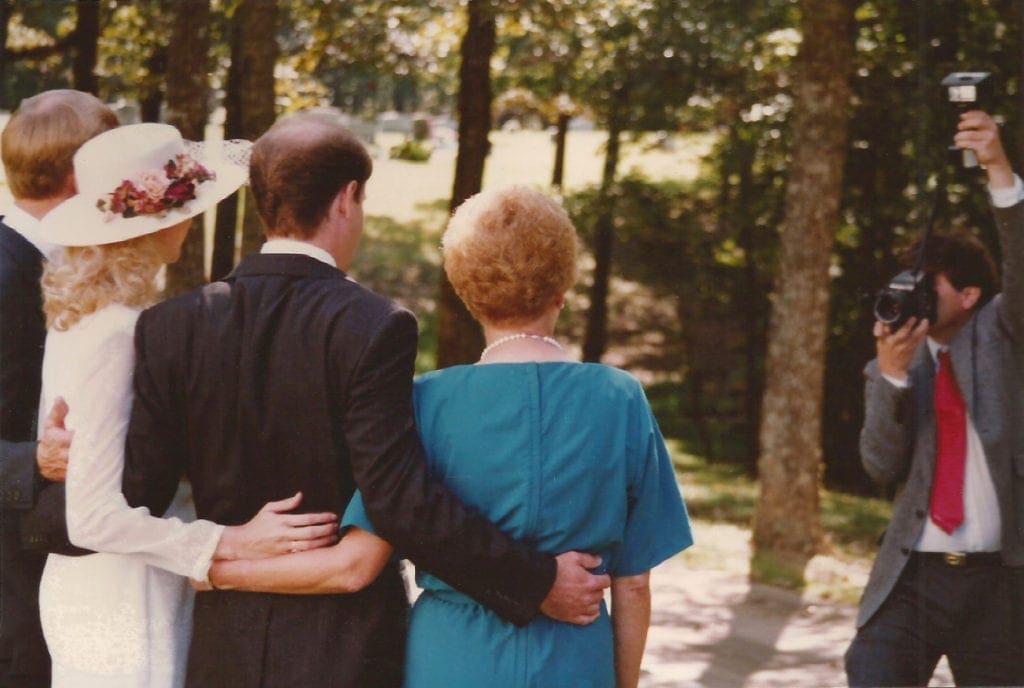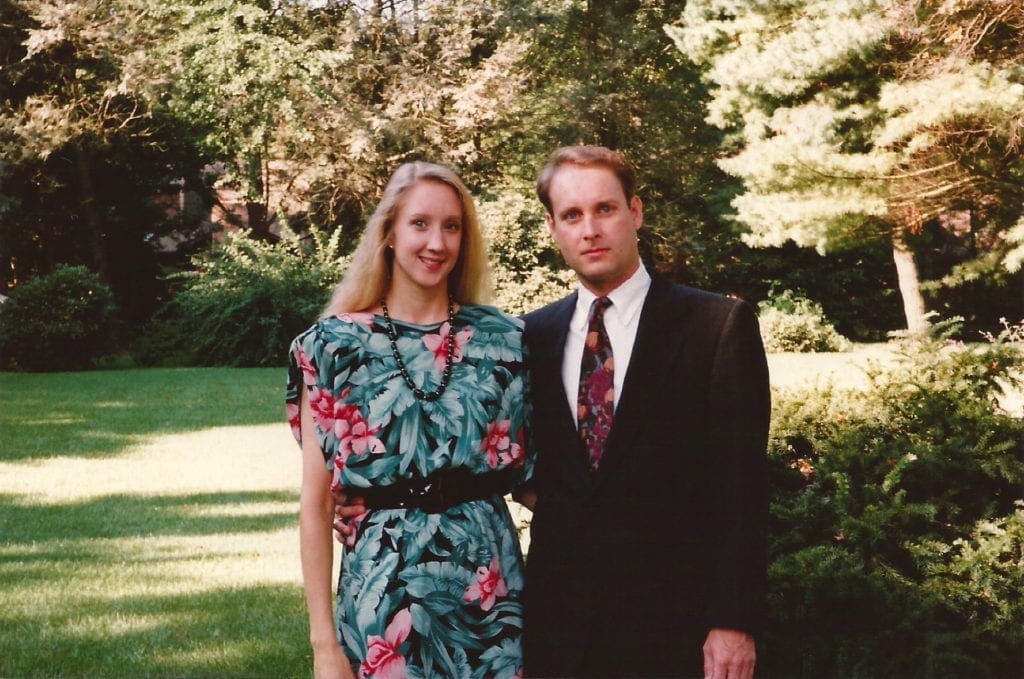Working at Pratt & Buehl, a business-to-business agency in Buckhead with fewer than 15 employees, would turn out to be one of the more difficult jobs of my life. Not because of the work—I enjoyed writing and I was good at it—and not because of the co-workers—they were a great bunch, and one became my roommate for a time—but because I hated the owners. Stated more accurately, I had a lot of hate in me, and the owners of that agency were where I decided to aim it. The fancy term for this is transference.
My boss, Dan, was the creative director, and while a good-hearted person, he didn’t have a creative bone in his body. His idea of brainstorming for an ad was to go through a box of ads done by other agencies and figure how to steal the headline and/or artwork and make it work for us. He couldn’t see a good idea when it stared him in the face. As for me, I was always so torqued up with anger at him, I wasn’t about to give him anything good to ignore. I guess he somehow reminded me of my mother.
I was also bored. I am very efficient as a writer, and they frankly didn’t have enough work for two writers. My big take-away was that eight hours is a really long time. In subsequent jobs, not to mention in life in general, I would go on to confirm that if you put your mind to it, a person can accomplish a lot in eight hours.
My cohort, Tom, was an interesting character who had also made a left-hand turn in life to come here. He used to be a roofer. At one point, he was thinking to leave and go back into roofing, so he went around the office with a handful of stock photos asking people which guy they thought looked most reliable. That would be the photo he’d use in his yellow-page ad. “Because nobody,” he’d said, “remembers what the guy in the ad looked like after you show up for the job. And if you just show up, you’re already better than half the roofers out there. So I want my ad to show a person who looks reliable, because that’s what people really want.”
Later in life, I would have a run-in with a roofer who had managed to pocket money I had given him, instead of turning it into the company. But I had a tricky repair job, and according to the owner of the roofing company who had called to talk with me, this guy was the best roofer they had. “If I fired a roofer every time one of them lied to me, I’d have no roofers,” he said. “That said, I’m going to have to fire Forest for this one. Do you want me to do it before he finishes your job, or after?” Forest finished the job nicely, and then was finished at his company.
My writing colleague, Tom, a born-again Christian who could sometimes be found sitting on the hood of his car reading the Bible, also liked to take his young sons to the emergency room at Grady hospital for entertainment. They’d sit in their car and watch stabbing and gunshot victims stagger in. Gunshot wounds were Grady’s specialty, given the hospital’s proximity to downtown Atlanta.
Tom went on a rant one day about writers who give workshops to people who pay money to come learn how to be a good writer. He was considering trying to lead such workshops, but then again, he was constitutionally opposed to it. In Tom’s opinion—and I’m not sure he was at all wrong—a person either is a good writer or they are not. Paying money, then, to listen to someone tell you all their tools and tips for “how they do it” would never turn a poor, or even so-so writer, into a good one. He himself couldn’t begin to explain why he was good it, and yet he was.
When Tom left, rather abruptly, in the fall of 1990, he left the agency in a lurch. He was supposed to attend a trade show for process control equipment manufacturers in New Orleans the following week, and do a survey for the agency’s largest client, Johnson Yokogawa. With Tom gone, I was asked to step in. This had historically been Rick’s client, which rolled over to Tom when Rick left, and now it was rolling to me. Actually, they all were, as the agency wisely decided not to backfill Tom’s position.
Arriving on the show floor, wearing my power suit and carrying a clipboard of survey questionnaires, I was ready to meet my new client and step up to the plate. At some point that day, my primary contact, Tom (a different one), would come over to me and say, “There’s someone here I’d like you to meet. This is Rick Sanders, the person you replaced.” Rick had moved to another ad agency with clients in the same space, so he was there drumming up new business. One year later, Tom would be the photographer at our wedding.

Returning to Atlanta, I was surprised when our production manager, Gail, told me that Rick had called asking about me. So the next time he called, she transferred him to me and he asked me out. He’d gotten two free tickets from a vendor to a polo match in Alpharetta and invited me to go. I’d never been to a polo match before—and haven’t been to one since—but we went. And we clicked.
Rick and I started dating immediately. We both played golf and often paired up with an art director I worked with, Ken, and his wife, Nan. In May, on the heels of a weekend visit to their family’s lake home on Lake Rabin, Rick and I had gone to see Jay Leno live at Chastain amphitheater, near Buckhead. It had rained for most of the show, so I was tired and crabby as we drove home. Rick was acting concerned.
By that time, Rick had moved into my apartment, which I shared with my co-worker Kathy. The place was set-up roommate style—bedrooms on opposite ends—so it worked. Unbeknownst to me, when we were leaving for the show and Rick claimed he needed to run back inside to use the bathroom, really he was setting the kitchen table with a red plaid tablecloth, and putting out chocolates and non-alcoholic champagne. Kathy had helped.
So when we walked into the apartment after the show and I saw all this, I was totally surprised. I turned to look at Rick, who held out a ring and asked me to marry him. With just half a moment’s thought, I said yes. We were married in September at a charming country church in the North Georgia Mountains. The reception was held at Forest Hill Mountain Getaway nearby, where the restaurant that served lunch and cake was decorated with saw blade art: Wildlife scenes painted on, you guessed it, the side of a saw blade.
It was a good match for the invitations we sent out, each of which contained a wildflower pressed between translucent sheets of paper by my mom, and included this poem:
This verse proclaims an autumn day
Two lives join, side by side;
Rick Sanders with God’s grace will have
Jill Hudson as his bride.
From this day forth, the chapters of
Our lives blend, intertwining;
As we unite our hearts and hands,
Two writers in one binding.
A blessing is God’s script for us,
Unfolding as we write it;
We’ll thank him for our happiness
Through marriage vows recited.
A book of love our lives will draft
Throughout the coming ages;
We’ll share our dreams and mark our joys
With scattered wildflower pages.
We hope that you can share with us
‘Mid mountain Oleander,
The day we pen our name in ink:
Mr. and Mrs. Sanders.
For the service, my parents provided the music, both singing and playing the piano. After lunch, many of the 30 or so guests walked over to the retreat center’s horseback riding stables and joined us for a trail ride. The next morning, Rick and I left for Paris for our honeymoon—a real one this time—and when I got back to work, I filled empty hours writing up a summary of our wonderful time in the “city of love.”

Next Chapter
Return to Walker Contents



